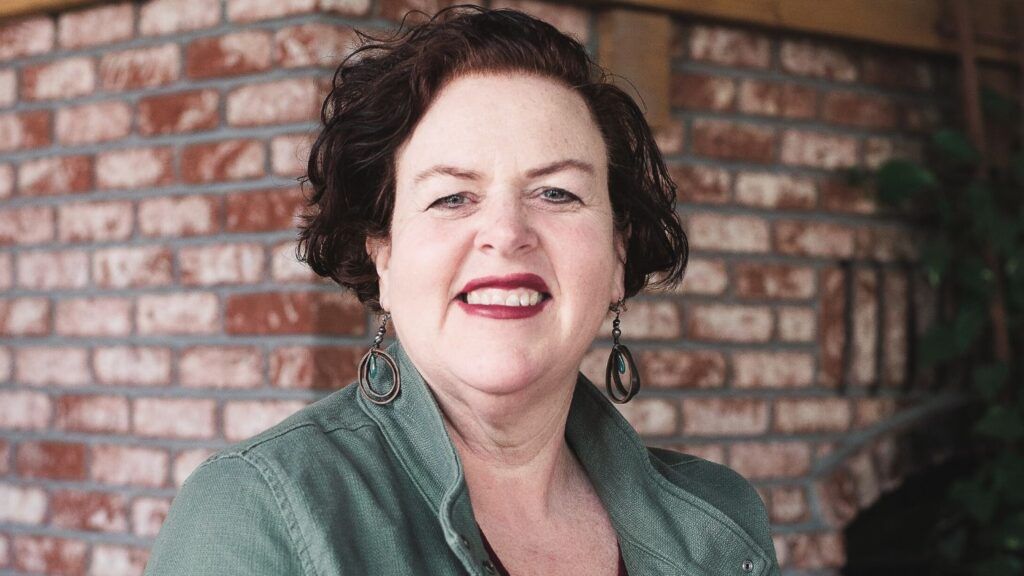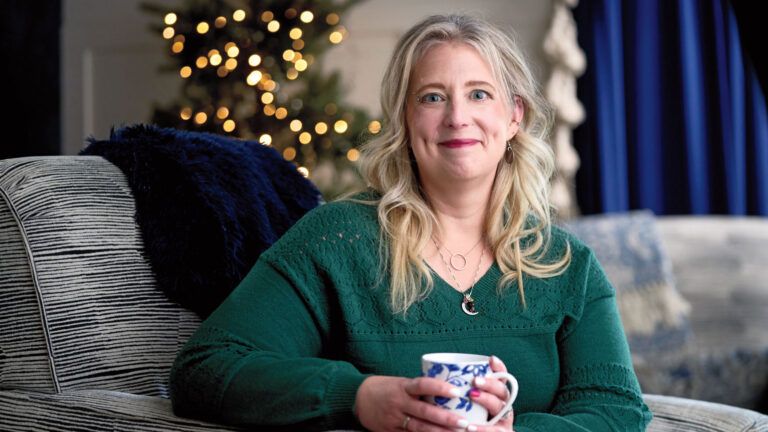The spread of the coronavirus and resulting stay-at-home orders has led many people to think about disaster preparedness.
But for speaker and author Kathi Lipp, this is a topic that’s been on her mind for quite some time.
The decluttering expert was spurred to think about the topic while on vacation in Canada with her family a few years back. The places they were staying didn’t have washers or dryers, so one day while at a local laundromat Lipp started looking up if it was possible to do laundry without a machine. Her search for hand-washing techniques led her to survivalist sites that then got her thinking: if she was struggling without a washing machine, what else was she unprepared to go without?
“I started to read a little bit more and I really realized that there wasn’t much out there for the person somewhere in between ‘just trust God’ and 10 years of baked beans,” Lipp told Guideposts.org.
The issue was then compounded by a fire in their neighborhood, where Lipp and her husband were forced to grab their dog and run outside. It wasn’t until a few minutes after they were both outside, that she realized they had forgotten to wake their son, a college student taking a nap after class. Her husband dashed back into the house and grabbed their son, but the oversight solidified it: Lipp decided they needed to be more prepared for emergencies.
The result is her latest book, Ready for Anything, a guide for preparing for any crisis.
When she wrote it, the pandemic was still months away. Now, her book’s message is more relevant than ever. The point of preparing is not to control external circumstances, Lipp says, but to set yourself up as well as possible for unforeseen circumstances.
“It has given me so much peace to be able to say, ‘I have done what I can do to prepare,'” Lipp says. “I trust God for what I can’t do.”
Here are a few of Lipp’s best tips for simple, easy ways to prepare you and your family for unexpected circumstances.
1. Save $100
Lipp says an easy first step is to collect extra one dollar bills until you have $100 in petty cash.
“You will never regret having extra money around,” Lipp explains.
If a job loss, pandemic or medical emergency, Lipp says having cash on hand will always be helpful.
2. Figure out what trials you are most likely to face
Going through a pandemic is an extraordinary occurrence, but there are some circumstances that are easier to predict. Lipp recommends that every person factor in a job loss to their preparedness plans, as well as making a plan for the natural disasters that are most likely to occur in their area.
For Lipp, who lives in California, that means being prepared for wild fires and earthquakes.
“I know I need to be on top of my water situation because an earthquake could take out a waterline very easily,” Lipp says. “In a wildfire situation, having my three day bag packed is really important for me because the chances of me having to get out in the middle of the night are real.”
3. Stock up on water containers
“It [can] feel a little weird, but I recommend getting a container for water,” Lipp says.
If you feel strange buying water containers, Lipp says it helps to remember that the Red Cross recommends storing a two week supply of water for your family in case of an emergency.
4. Make a five minute plan
Lipp’s next tip is to make an immediate action plan for if one of these things does come to pass. For instance, if her husband gets laid off, they have a plan for the first steps they would take.
“The reason I want you to have a five minute plan and talk it out with your partner or maybe it’s your roommate, whomever it is, is because it’s so easy to panic at first,” Lipp says.
Having a task list can help ease that panic.
For her and her husband, the first step on their five minute plans is always to pray together.
5. Conduct an inventory of your food supply
The pandemic has caused many people to stock up on food. However, Lipp says it’s also an opportunity to assess how much food you regularly keep on hand.
“I think a lot of people probably do have two weeks’ worth of food in their house,” Lipp says. But she suspects many people may not be fully aware of how much food they actually have. “Inventory what you have, clear out the clutter and inventory the foods you have.”
Once you have your inventory, Lipp says you may realize you don’t actually need that emergency grocery run, or you may have a better idea of what food you are lacking.
6. Prepare from a place of faith
Lipp says that the desire for disaster preparedness can from two very different places: wisdom or fear. While it’s wise to be prepared, it’s possible to over prepare and allow fear to dictate your decisions.
For Lipp, she realized she wanted to be wise enough to prepare, but that she ultimately needed to place her trust in God, and not material things, to protect her.
“What I realized I really wanted to do was make sure that if there is a disaster that I could take care of the people I love and the people God has put around me,” Lipp writes in the book. “That is a place of wisdom and love.”
For more information and resources, check out Lipp’s website.





